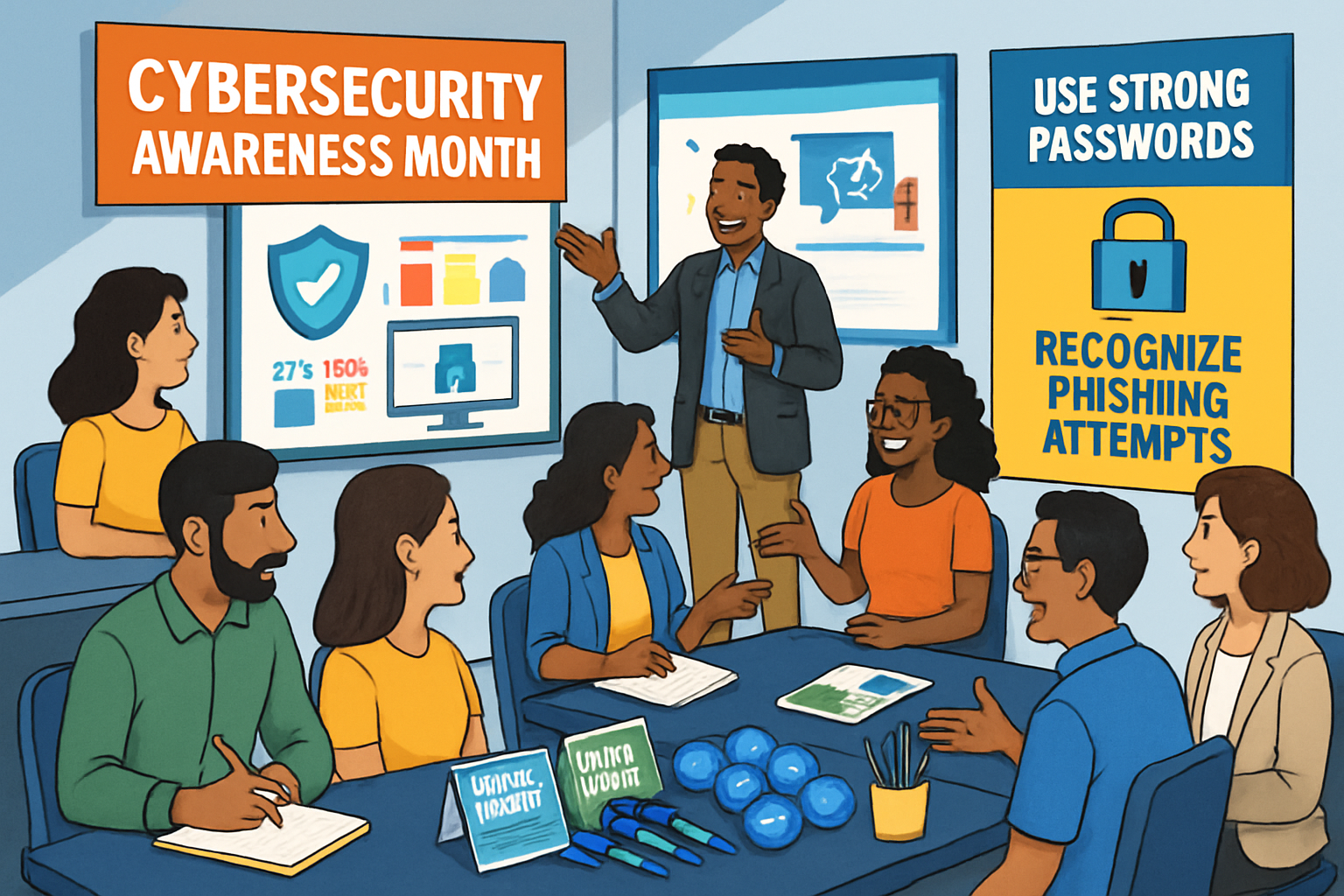Why Business Continuity Testing Is Crucial for Small Enterprises
Discover why proactive business continuity testing can mean the difference between survival and failure for small enterprises facing unexpected...
2 min read
.jpeg) Michael Markulec
:
Oct 15, 2025 10:42:03 AM
Michael Markulec
:
Oct 15, 2025 10:42:03 AM

Discover why proactive business continuity testing can mean the difference between survival and failure for small enterprises facing unexpected disruptions.
Small businesses face numerous risks daily, many of which can be easily overlooked. From increasingly sophisticated cyberattacks and data breaches to natural disasters and supply chain disruptions, these threats can severely impact business operations, causing interruptions that ripple across every area of the organization. Unlike larger enterprises with deeper reserves and dedicated crisis teams, small businesses often lack the financial resources, technical expertise, or staff capacity to respond and recover swiftly, leaving them more exposed to prolonged downtime, regulatory penalties, and significant economic losses. Beyond external threats, operational risks also come from within. Everyday incidents—such as human error, equipment malfunctions, software failures, or unexpected utility outages—can halt production, slow service delivery, and erode customer trust. Given the tight margins and lean structures typical of small enterprises, even a brief service disruption can have outsized consequences. Without a robust, well-tested continuity plan, what begins as a minor incident may quickly escalate, compounding the damage, reducing revenue, and in severe cases, threatening the business’s long-term viability. Proactive planning is essential not only for safeguarding assets and data but also for ensuring customer confidence and maintaining a competitive edge in uncertain times.
Business continuity testing involves simulating a wide range of potential disruptions—such as cyberattacks, hardware failures, power outages, or supply chain interruptions—to rigorously evaluate the practical effectiveness of your company’s response and recovery plans. By intentionally triggering realistic scenarios, your team can assess whether critical operations can continue, identify communication bottlenecks, and uncover gaps or vulnerabilities that may be missed during routine business activities. For small enterprises, the value of business continuity testing is even greater. These exercises empower organizations to develop tailored, step-by-step roadmaps for crisis management, even when resources are limited. Through regular testing, companies not only validate the viability of their contingency plans but also ensure that employees are familiar with their roles, responsibilities, and emergency protocols. Training staff through live simulations builds confidence and sharpens decision-making under pressure. At the same time, continuous refinement of strategies leads to greater adaptability and resilience—all of which are vital to safeguarding revenue, reputation, and long-term stability in an unpredictable world.
Failing to conduct regular business continuity tests can have severe consequences that many small businesses do not anticipate. Without ongoing evaluation and practice, organizations remain unprepared to respond to disruptive incidents—resulting in prolonged operational downtime, substantial financial losses, regulatory violations, and lasting reputational harm. For smaller enterprises, in particular, these disruptions can threaten not just profitability but the company’s very survival. In the worst scenarios, the inability to recover from a major crisis can force permanent closure. Consider the real-world impact: a cybersecurity breach might expose confidential client or patient information, triggering regulatory investigations, legal penalties, and erosion of longstanding customer trust—damaging both brand and bottom line. Similarly, a natural disaster, such as a flood or major storm, can halt business operations for weeks or longer if a clear, agile recovery plan isn’t already in place, leading to loss of clients, interrupted revenue, and cascading supply chain setbacks. Even seemingly routine events—a server failure, accidental data deletion, or a communications outage—can cause outsized damage when response plans are untested or outdated. Ultimately, the cost of inaction in business continuity can dramatically exceed the investment required for implementing and rehearsing robust continuity plans. Regular testing identifies fundamental gaps, strengthens employee response, and empowers leadership to make informed, timely decisions under pressure, helping businesses avoid preventable losses and safeguard their future.
Building a culture of resilience starts with commitment from leadership and engagement across every level of the organization. Encourage proactive risk awareness, integrate continuity planning into everyday operations, and make regular testing a routine part of business life. Equip employees with the knowledge, tools, and authority to respond swiftly to disruptions, and celebrate lessons learned from each test or real-world incident. By embedding resilience into the company’s culture, small businesses not only reduce vulnerability to unexpected crises but also foster confidence, trust, and loyalty among clients, partners, and employees—turning preparedness into a competitive advantage that sustains growth and stability over the long term.

Discover why proactive business continuity testing can mean the difference between survival and failure for small enterprises facing unexpected...

Each October, Cybersecurity Awareness Month (CAM) provides organizations with a valuable “pause point” to refocus—and reenergize—their information...

Navigating the complexities of PCI DSS compliance can be daunting, but ensuring your small business meets these standards is crucial for financial...